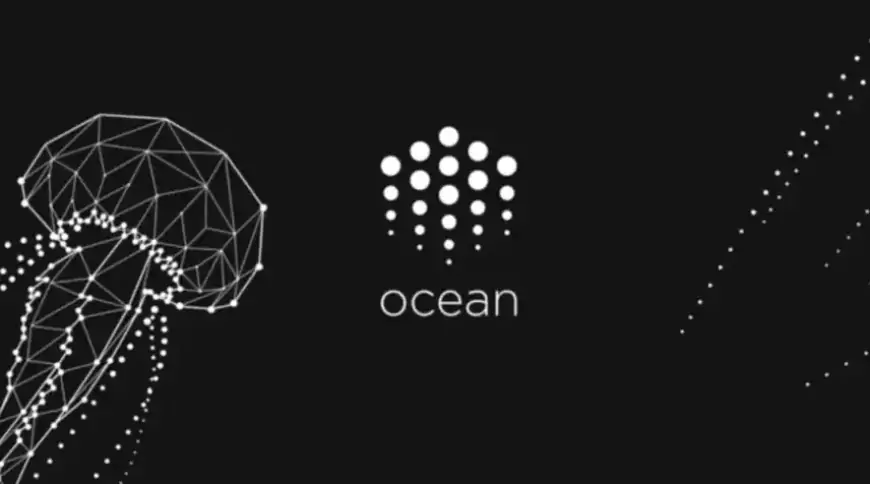What is Ocean Protocol? A guide in 2024
Ocean Protocol (OCEAN) is a decentralized data exchange protocol, enabling secure and efficient sharing, monetization, and consumption of data.

Understanding Ocean Protocol
Ocean Protocol serves as a gateway for data services in the crypto realm, unleashing the value inherent in data. Established in 2017, it leverages blockchain technology to facilitate connections between data providers and consumers. Through the Ocean Market app, data owners can monetize their data while upholding privacy and control. This platform enables consumers to access private data previously unavailable to them. This is especially beneficial for AI practitioners and data scientists, granting them access to more data, along with crypto-secured provenance and income opportunities. Compute-to-data functionality permits the use of private data in AI models and research without direct sharing. Users of Ocean Protocol can also earn rewards by staking tokens for data curation. Additionally, developers can utilize Ocean Libraries to construct and deploy decentralized marketplaces, wallets, and other applications. The Ocean token serves as the protocol's native utility token, acting as the primary unit of exchange within the Ocean Market and serving purposes in governance and staking.
Understanding the functioning of Ocean Protocol
Ocean Protocol operates by linking data assets with blockchain and decentralized finance (DeFi) tools through datatokens, which are ERC-20 tokens representing access rights to data. Providers deploy and mint datatokens to publish data services, while consumers utilize datatokens to access these services. Consumers can transfer datatokens to others to grant them access.
In the Ocean Market, datatokens can have fixed prices or use automated price discovery via automated market makers (AMMs) powered by Balancer. These AMM pools contain both datatokens and OceanN tokens, with prices adjusting based on the token ratio in the pool.
Ocean holders can engage in data curation by staking their tokens in liquidity pools, earning fees while facing risks like impermanent loss and rug pulls. Datatokens serve as a bridge between the data industry and DeFi, being tradable, transferable, and usable in various DeFi operations due to their ERC-20 nature.
Unique characteristics of Ocean Protocol
Ocean Protocol distinguishes itself by utilizing datatokens to transform data into assets, offering numerous advantages previously lacking in the data market. This unique approach enables data owners to monetize their data through tokenization while democratizing data access, allowing anyone to purchase it on the open market, including data that was previously inaccessible or difficult to obtain.
The project is committed to enhancing AI and spreading its benefits. Data scientists benefit from direct access to data through Ocean's Python library resources and tools. Additionally, the integration of blockchain technology ensures that AI practitioners benefit from crypto-secured provenance.
Ocean staking deviates from the staking mechanisms of many other cryptocurrencies. Stakers act as liquidity providers, depositing Ocean into automated market maker (AMM) pools to curate data.
Furthermore, the ERC-20 nature of datatokens enables them to repurpose ERC-20 wallets as data wallets and crypto exchanges as data marketplaces, further enhancing accessibility and usability.
Ocean Protocol coin circulation
Ocean Protocol has a maximum supply of 1.41 billion tokens, with 648,550,194 currently in circulation. A significant portion of the maximum supply, 51%, will be allocated to support community projects managed by the OceanDAO, distributed gradually over decades following a schedule similar to Bitcoin's. Additionally, Ocean demonstrates deflationary characteristics, as 5% of all network revenue is burned. This implies that Ocean supply will diminish more rapidly as the Ocean Protocol gains wider adoption.
Selecting an Ocean Protocol wallet
Ocean tokens can be stored in any wallet with ERC-20 support, and the choice of wallet depends on your specific needs and the amount of Ocean you intend to store.
Hardware wallets, such as Ledger or Trezor, offer the highest level of security with offline storage and backup. Although they require technical proficiency and are relatively expensive, they are ideal for safeguarding significant amounts of Ocean, particularly for experienced users.
Software wallets present another option and are accessible as free smartphone or desktop applications. They can be custodial, where the service provider manages and backs up private keys, or non-custodial, utilizing secure elements on your device. While less secure than hardware wallets, they are suitable for smaller Ocean holdings or novice users due to their ease of use.
Online wallets, or web wallets, are also free and easy to use but are considered less secure as they are hot wallets. Trusting the platform with your Ocean is necessary, making reputation and security track record crucial when selecting such wallets. They are best suited for holding smaller amounts of Ocean or for frequent trading activities.
Kriptomat offers a secure storage solution for Ocean tokens, combining storage and trading functionalities with enterprise-grade security and user-friendly features. With Kriptomat, buying, selling, or trading Ocean is swift and hassle-free, ensuring a seamless experience for users.
Participating in Ocean staking
Ocean staking involves users depositing their Ocean tokens into liquidity pools alongside datatokens associated with datasets. This process serves as a means of dataset curation, as higher-quality datasets attract larger Ocean allocations. Participants can earn transaction fees, which are a percentage of sales volume determined by the liquidity pool creator.
However, staking entails risks. The Ocean-to-datatokens ratio may fluctuate, leading to impermanent loss. Additionally, rug pulls may occur if the datatoken publisher withdraws their Ocean stake abruptly.












































